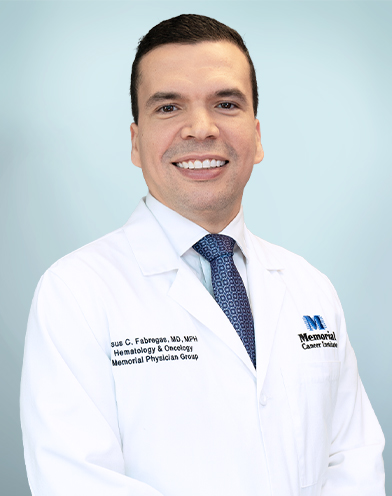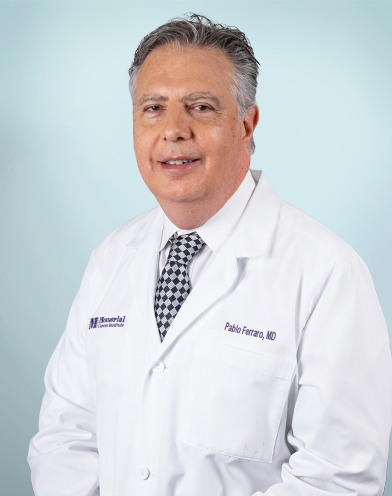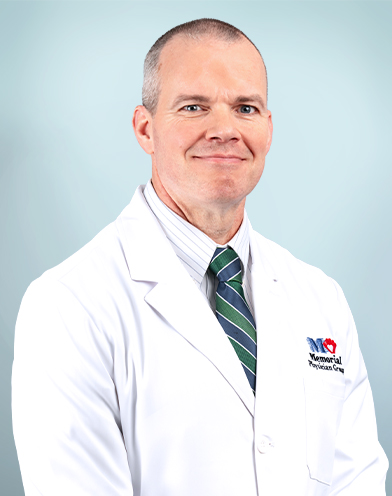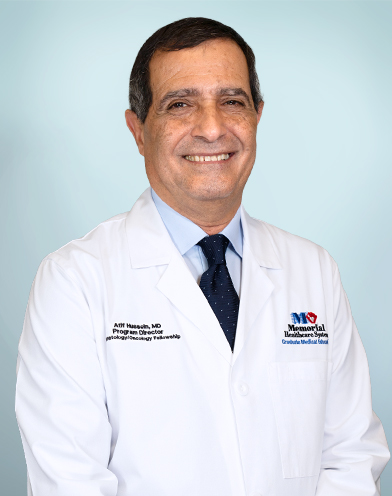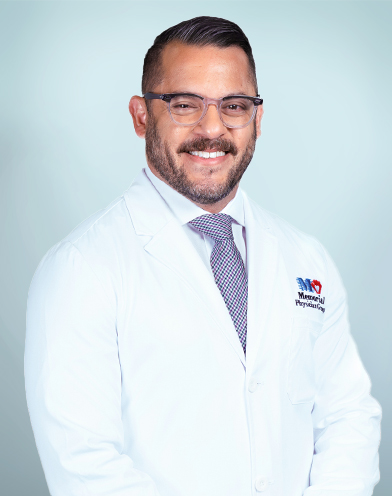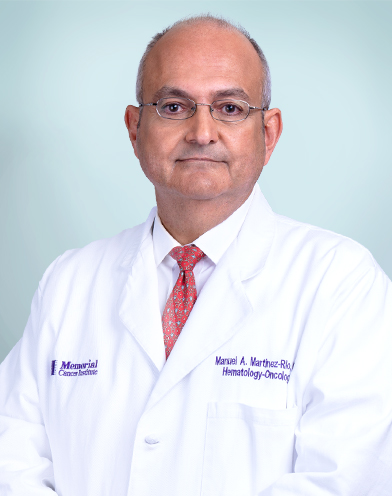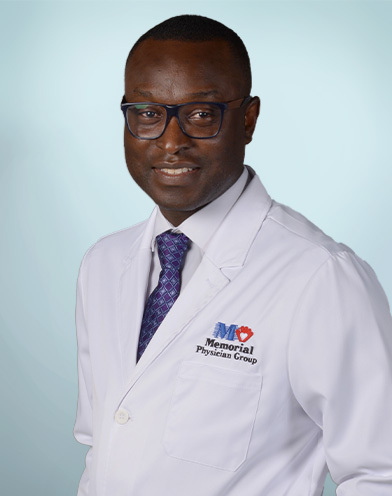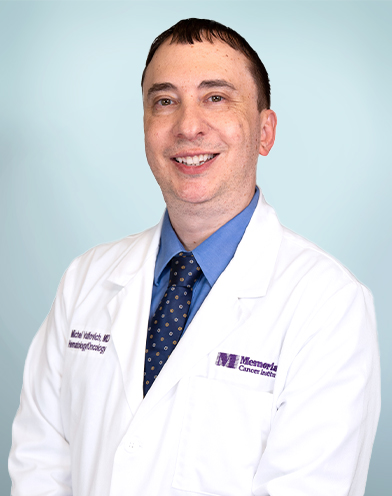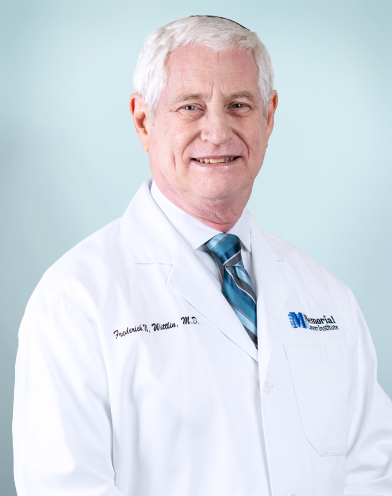Cancer of the Stomach
We offer comprehensive care that helps many patients eat and digest food after gastric cancer.
Stomach (gastric) cancer symptoms can leave you feeling uneasy about your future health and ability to eat. But it doesn’t have to be this way.
The highly skilled specialists at Memorial Cancer Institute understand your concerns and deliver therapies that help you move forward with your life. Our track record of successful treatment enables more patients to return to their favorite activities, including enjoying their favorite foods.
Diagnosing Stomach Cancer
We typically use endoscopy to check the inside of the stomach for signs of gastric cancer. If necessary, our advanced endoscopy team uses a specialized ultrasound device at the endoscope tip to provide enhanced views of the stomach lining. It helps us pinpoint cancerous growths, determine their size and decide whether we can remove them with endoscopy or surgery.
Tiny endoscopic instruments enable us to take a tissue sample during your procedure. Doctors who specialize in diagnosing cancer (pathologists) evaluate the sample under a microscope. Our team includes pathologists with a depth of experience in stomach cancer, leading to an accurate diagnosis.
We routinely perform enhanced pathology testing to learn more about the makeup of the tumor, including specific genes and proteins. This information lets us know whether specific medical treatments, like targeted therapy, will work. You may also need blood tests to check for anemia and perform tumor marker testing.
Gastric Cancer Treatments and Support
We remove early-stage cancers using endoscopy or surgery to remove a portion of the stomach. For more advanced cancers, you may need a complete gastrectomy. If we remove the entire stomach, surgeons repair the digestive tract by connecting the esophagus to the small intestine. After recovering, you can still eat and digest food. But you’ll need to consume smaller, more frequent meals and chew food thoroughly.
Your care may also include innovative medical oncology therapies. Targeted therapies halt specific mutations that fuel cancer cell growth. Immunotherapy boosts the immune system’s ability to recognize and destroy cancer cells. We also offer radiation oncology, which uses special technologies to deliver radiation to the cancer. You may receive these treatments before or after surgery.
Supportive Therapies and Services for Gastric Cancer
We deliver additional treatments and support to help you feel your best. You may benefit from nutrition support, including vitamins and therapies to ease stomach discomfort. Some people need procedures to relieve complications such as digestive tract narrowing. You also have access to a broad range of cancer support services, such as help from social workers and registered dietitians.
Stomach Cancer Care: Why Choose Memorial Cancer Institute?
Our program is home to doctors with a depth of gastric cancer expertise. We stay current on the latest research and offer leading therapies. Even if you have advanced cancer or it comes back after treatment, we can help you. These are some of the many reasons patients from across South Florida turn to us.
Highlights of our program include:
- Collaborative care: Surgeons, endoscopists, medical oncologists, radiation oncologists and pathologists work together to optimize your care. Many of our specialists have decades of experience, including complex cases. We coordinate every step of your care, making it easier to focus on healing. Meet our team.
- Cancer genetics: If stomach cancer runs in your family, you may face a higher risk of this diagnosis. The same is true if you inherit gene mutations associated with other cancers, like breast and colon. Both situations are rare, but our team has the expertise to manage them. Our cancer genetics program accurately assesses your risks, leading to early detection and timely treatment.
- Advanced endoscopy: We slide a thin tube with instruments at the tip down your throat to access your stomach. Endoscopy enables us to detect cancerous growths that are not visible with MRI or CT scans. We also use it to remove early-stage cancer and treat complications. Many of these procedures are not widely available in South Florida.
- Surgical excellence: Gastrectomy is a common treatment to remove all or part of the stomach. Our surgeons often remove tissue using robotic surgical technologies that offer the highest degree of precision and a quicker recovery.
- Focus on quality of life: Our holistic approach optimizes your well-being throughout treatment. If you need a gastrectomy, we explain how to keep up with your nutritional needs. Integrative medicine services for cancer relieve discomfort with offerings that include acupuncture, massage and mindfulness and relaxation techniques.




